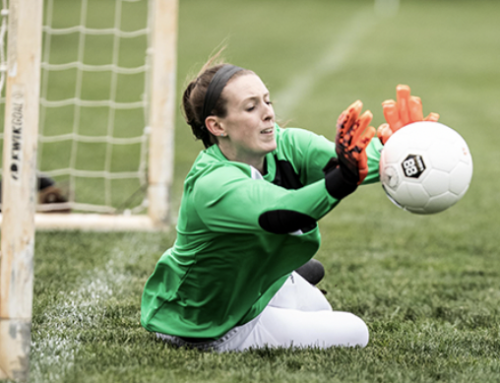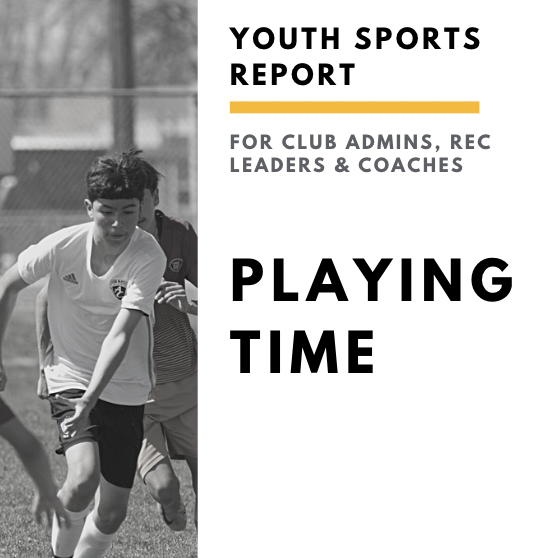Get our exclusive report. Download the iSport360 Club Switching Report Here – For Club Admins, Rec Leaders and Coaches.
Achieving Athletic Excellence: Setting and Tracking Goals Like a Pro
Achieving greatness in sports requires more than just raw talent and physical prowess; it demands discipline, determination, and a well-structured plan. Athletes at every level, from beginners to professionals, can benefit from setting and tracking goals. Let’s explore the importance of goal setting for athletes and provide a comprehensive guide on how to set and track goals effectively to maximize your athletic potential.
Why Set Goals as an Athlete?
Setting and tracking goals in sports is like having a roadmap to success. Here are some compelling reasons why goal setting is crucial for athletes:
- Motivation: Goals provide athletes with a sense of purpose and motivation. When you have clear objectives, it’s easier to stay committed and push through the toughest training sessions.
- Measurable Progress: Goals enable athletes to measure their progress objectively. Tracking your performance allows you to identify areas that need improvement and celebrate your successes.
- Focus: Goals help athletes stay focused on what truly matters. With a clear target in mind, you can avoid distractions and make the most of your training time.
- Accountability: Sharing your goals with a coach, trainer, or teammate can help you stay accountable. They can provide guidance and support to keep you on track.
- Confidence: Achieving your goals, no matter how small, boosts your confidence. This increased self-belief can be a game-changer on the field or court.
Now that we understand why goal setting is essential, let’s dive into the process of setting and tracking goals as an athlete.
Setting SMART Goals
Effective goal setting starts with creating SMART goals. SMART is an acronym that stands for Specific, Measurable, Achievable, Relevant, and Time-Bound. Here’s how to apply each of these principles:
- Specific: Your goal should be precise and clearly defined. Avoid vague objectives like “get better at basketball.” Instead, set a goal like “improve my three-point shooting accuracy by 10% in the next three months.”
- Measurable: You must be able to measure your progress and determine when you’ve achieved your goal. Using quantifiable metrics like time, distance, or percentage is crucial. In our example, you can measure shooting accuracy by the percentage of successful three-point shots.
- Achievable: While it’s important to aim high, your goals should also be realistic. Consider your current skill level and resources. Setting a goal to make it to the NBA within a year might not be achievable, but working on specific skills to improve your chances is.
- Relevant: Ensure that your goals align with your overall athletic aspirations. They should make sense in the context of your sport and your long-term objectives. Focusing on relevant goals keeps you on the right path.
- Time-Bound: Every goal needs a deadline. Setting a timeframe creates a sense of urgency and prevents procrastination. In our example, the goal has a clear deadline of three months.
Tracking Your Progress
Once you’ve set your SMART goals, the next step is to track your progress. Here’s how to effectively monitor your journey towards achieving your goals:
- Break It Down: Divide your larger goal into smaller, manageable milestones. For instance, if your goal is to improve your three-point shooting accuracy by 10% in three months, set monthly or weekly targets.
- Keep a Journal: Maintain a training journal or digital tracking tool where you record your workouts, practice sessions, and results. This provides a clear record of your progress and allows you to identify trends.
- Regular Assessments: Conduct regular assessments or evaluations to measure your performance against your set benchmarks. Adjust your training plan as needed based on your progress.
- Feedback: Seek feedback from coaches, trainers, or experienced athletes. They can provide valuable insights and suggest adjustments to your training regimen.
- Stay Adaptable: Remember that not every plan will go perfectly. Be prepared to adapt and modify your goals if necessary. Sometimes unforeseen circumstances or physical limitations may require adjustments.
Maintaining Motivation
Staying motivated throughout your journey towards achieving your goals can be challenging, but it’s crucial for success. Here are some tips to help you maintain your motivation:
- Visualize Success: Imagine yourself achieving your goals. Visualizing success can boost your confidence and drive.
- Stay Accountable: Share your goals with someone you trust, like a coach, mentor, or training partner. Knowing that others are aware of your goals can help keep you accountable.
- Celebrate Small Wins: Don’t wait until you’ve achieved your ultimate goal to celebrate. Acknowledge and reward yourself for reaching each milestone along the way.
- Stay Positive: Maintain a positive mindset, even when facing setbacks or challenges. Focus on what you’ve accomplished and use failures as opportunities to learn and grow.
- Stay Consistent: Consistency is key to progress. Stick to your training plan, even on days when you don’t feel like it. The effort you put in during these moments will pay off in the long run.
Summary
Setting and tracking goals as an athlete is a proven way to maximize your potential and reach new heights in your sport. By following the SMART goal-setting framework, consistently tracking your progress, and staying motivated, you can pave the path to athletic excellence. Remember that the journey to achieving your goals is as important as the destination, so embrace every step along the way, and keep pushing your limits to become the best athlete you can be.
iSport360 is the only app that does it all for youth sports. For more information on what we do, click here.
About the author:
Amy Masters is a sports mom, coach, and club administrator. She has been coaching youth sports for more than 10 years. She started Jr Lions Field Hockey, the youth recreation program for the Hunterdon County community growing it from 40 players in year 1 to 150 players by year 3. A few years later, she saw the love and competitiveness grow then started Omega Field Hockey Club serving NJ and PA players. Prior to coaching, she was a collegiate field hockey player for Lock Haven University. In her spare time (lol), she is head of marketing for iSport360, where she brings her love of sports to a bigger audience.
Learn more or request a demo of our youth sports software that is helping teams improve communication, organization and player development.
October 3, 2023






